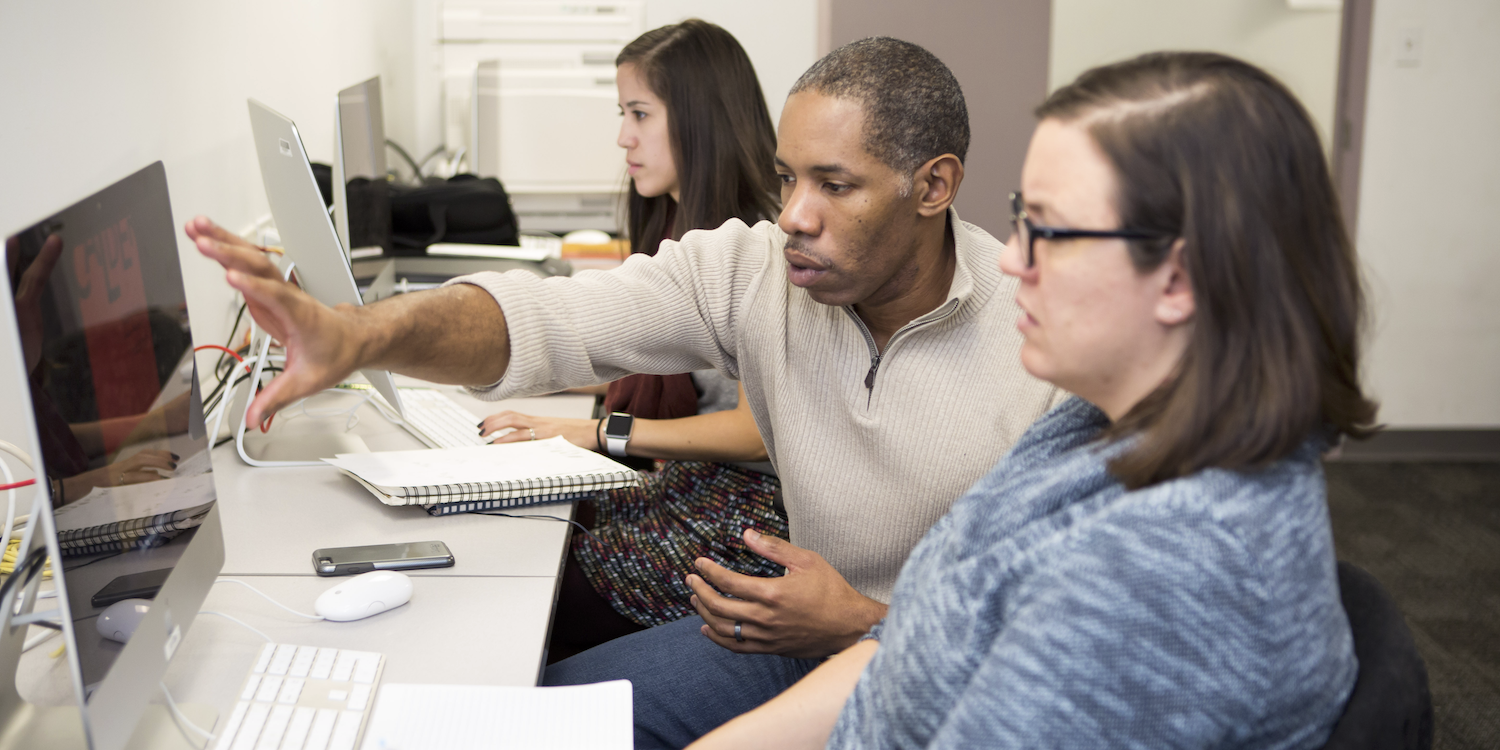| |
Jan 04, 2025
|
|
|
|
|
2022-2023 University Catalog [Archived Catalogue]
Educational Technology, MEd
|
|

Natalie Duvall, Program Director
nduvall@uarts.edu
215.717.6092
C O N T E N T S
Application
Learn more and apply to the Educational Technology program.
Description
The MEd in Educational Technology is designed for educators looking to gain and deepen expertise integrating technology into teaching and learning. Aligned with standards established by the International Society for Technology in Education (ISTE) and the Association for Educational Communications and Technology (AECT), our MEd in Educational Technology provides a comprehensive understanding of the role of technology in today’s classroom and enables educators to acquire the skills and knowledge base to effectively utilize technology in all aspects of teaching.
The MEd in Educational Technology consists of 30 credits (nine courses) in a flexible format and is offered in an online, primarily asynchronous, format. Most courses will include some synchronous work with faculty members and other students, but most of the learning will take place asynchronously. The nine total courses consist of three elective courses and seven core courses in designing technology-based learning environments, differentiated instruction, technology integration, emerging technologies, and multimedia; a project-based capstone sequence. In recognition of the evolving technological landscape, the curriculum and course content will be evaluated and adapted to align with federal, state, and industry standards; and to ensure responsiveness to advancements in technology.
Program Objectives
Students in the MEd in Educational Technology will:
- Educators will learn to build, adjust and evaluate curriculum and instruction using 21st century technologies.
- Educators will better understand how to incorporate 21st century technologies into curriculum design, instructional practice, and student assessment.
- Educators will locate and explore the broad range of technological devices and tools and how to determine the appropriate mix to meet student learning needs.
- Educators will understand how the integration of technology can aid in the development of higher order abilities such as thinking critically, engaging in creative and complex problem solving, and applied thinking.
- Educators will define digital citizenship and formulate an appropriate code of ethics for today’s classroom.
Program Requirements (30 credits)
|
Required Courses (21 credits)
Electives (9 credits)
- Select 2 courses from subjects: ETEC, STET 6 credits
- Select 1 course from subjects: ETEC, INCL, LITY, STET, STIP, STTA, VPAS 3 credits
|
|
|